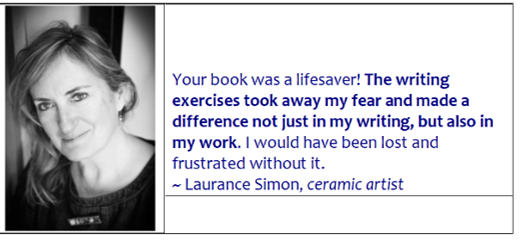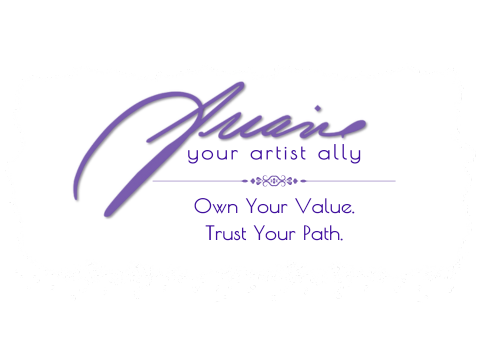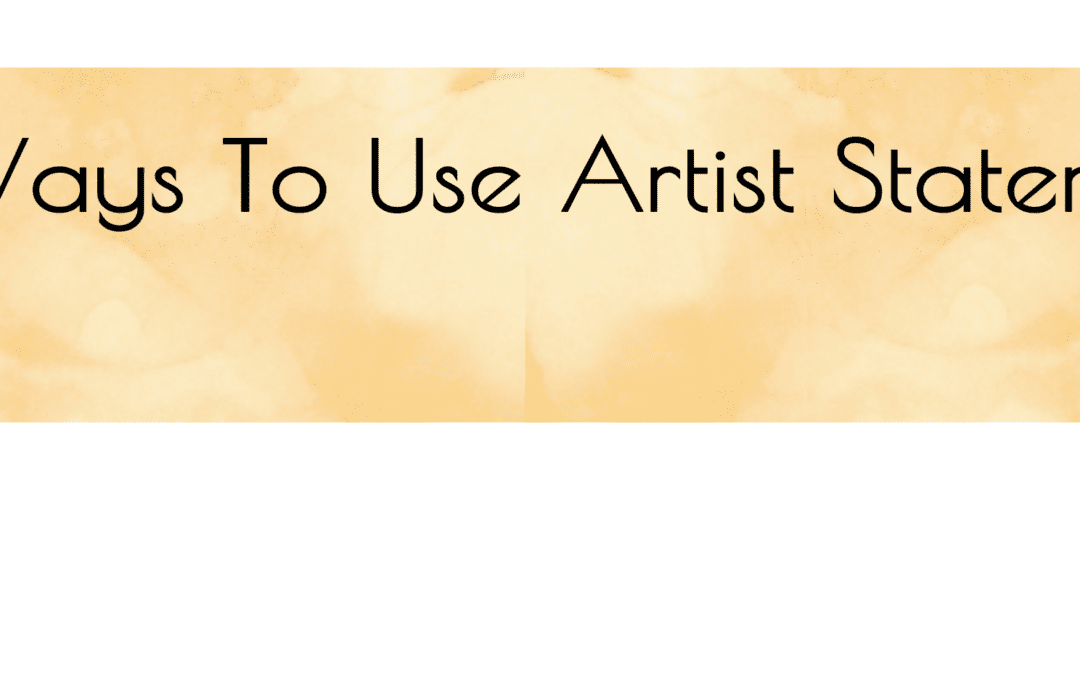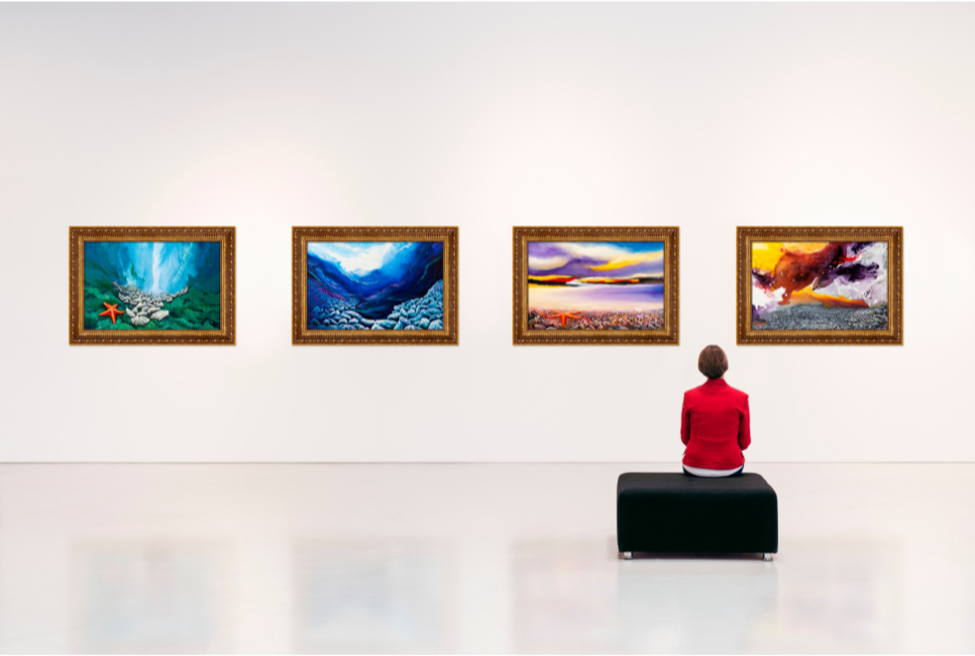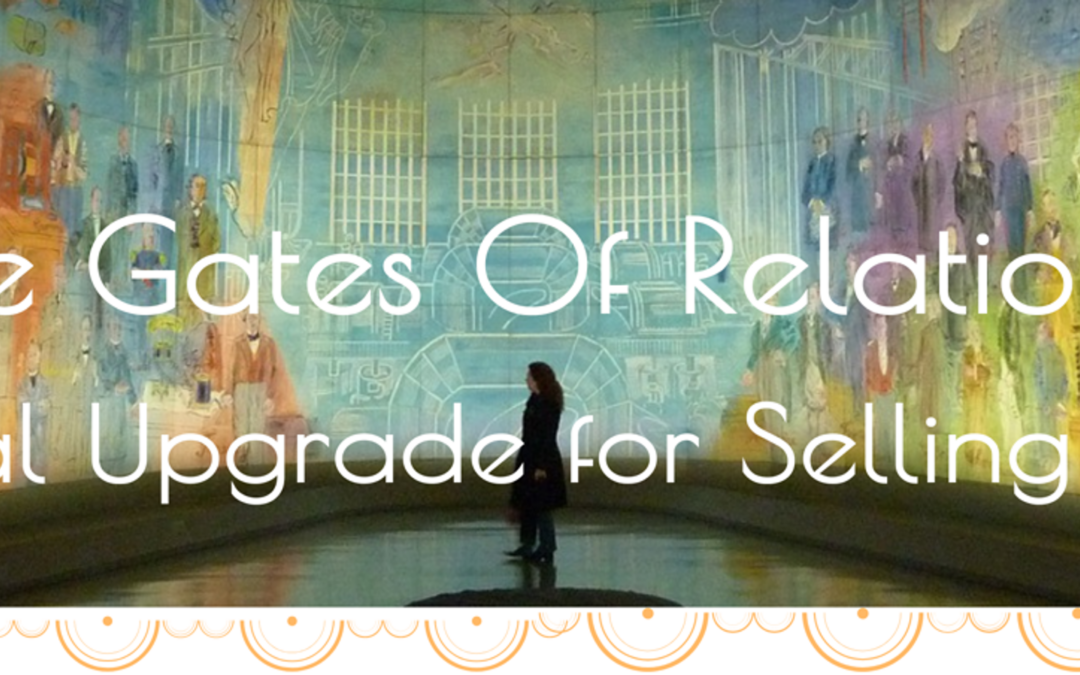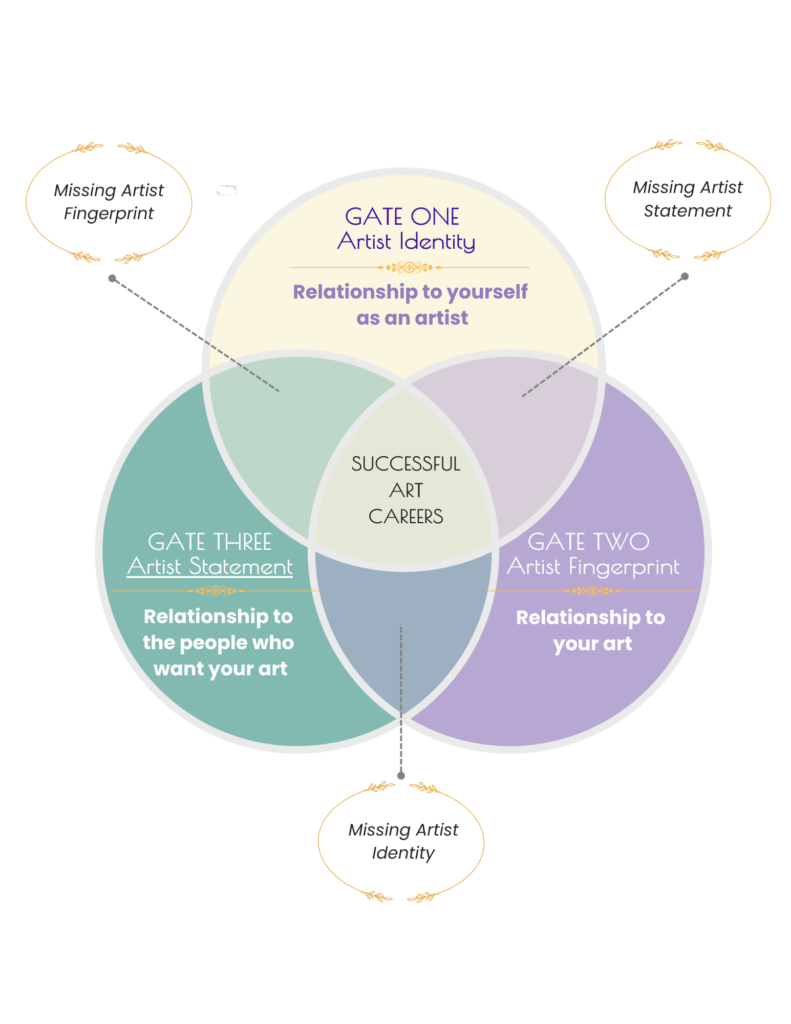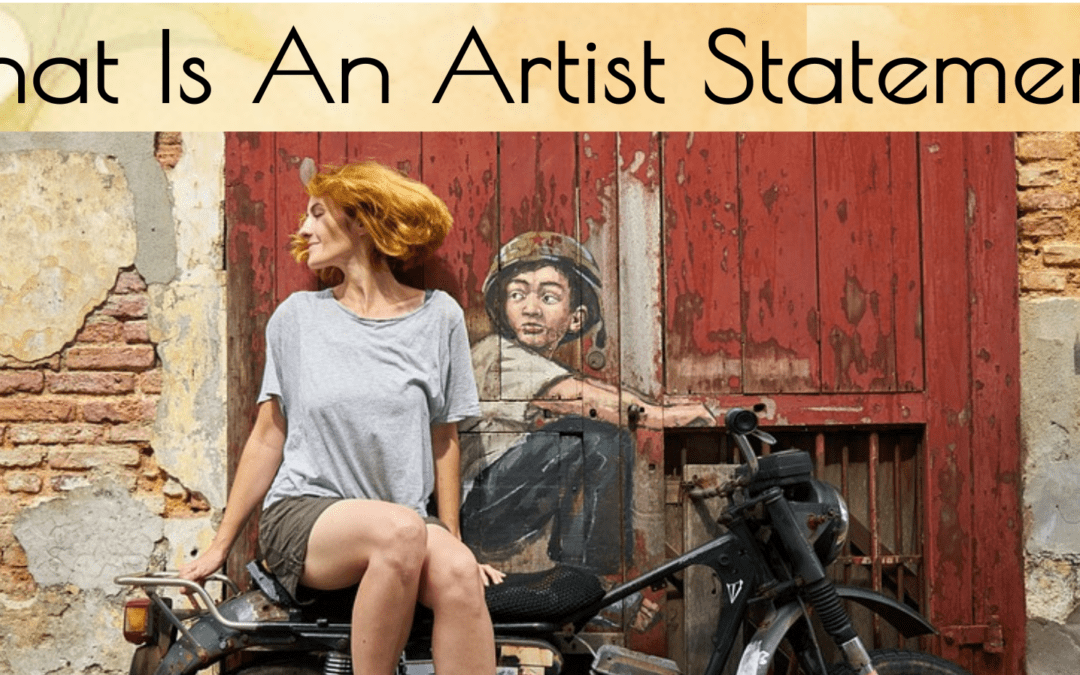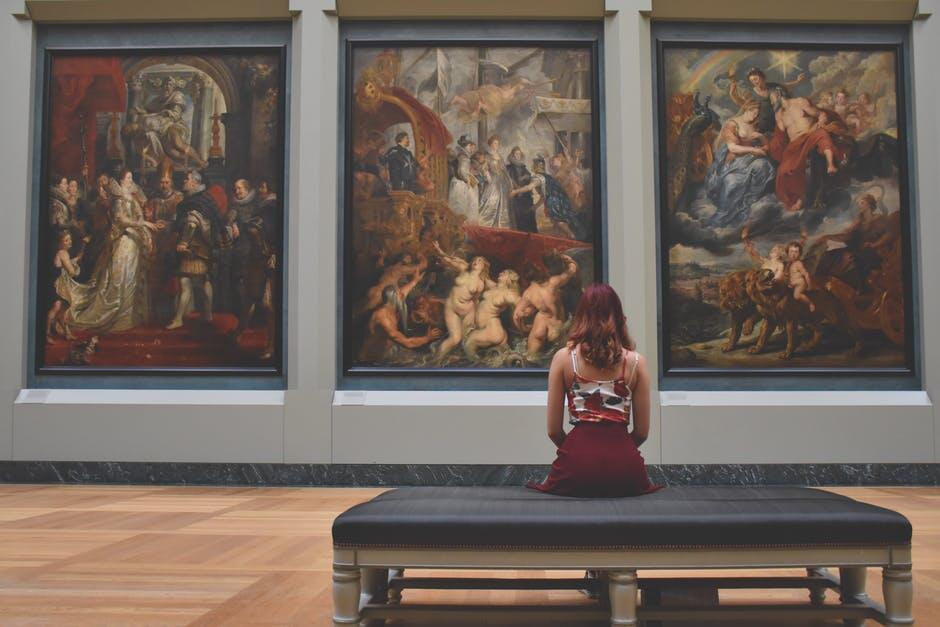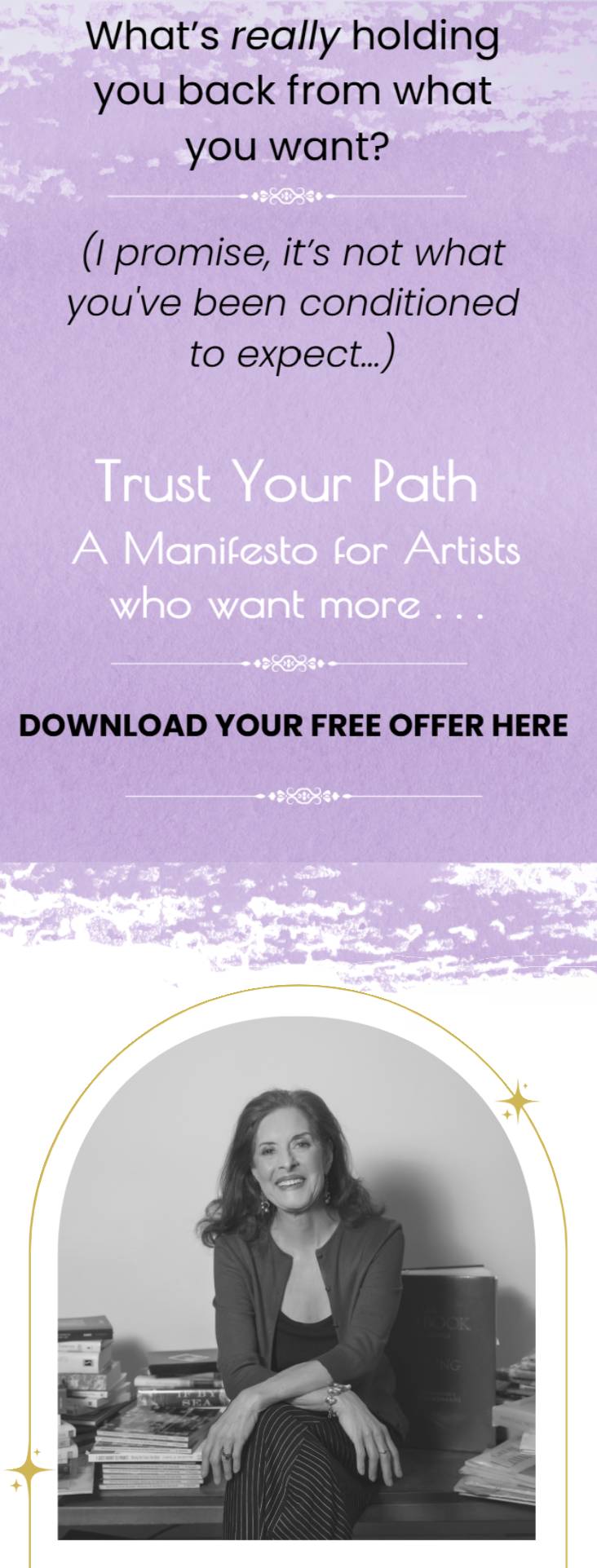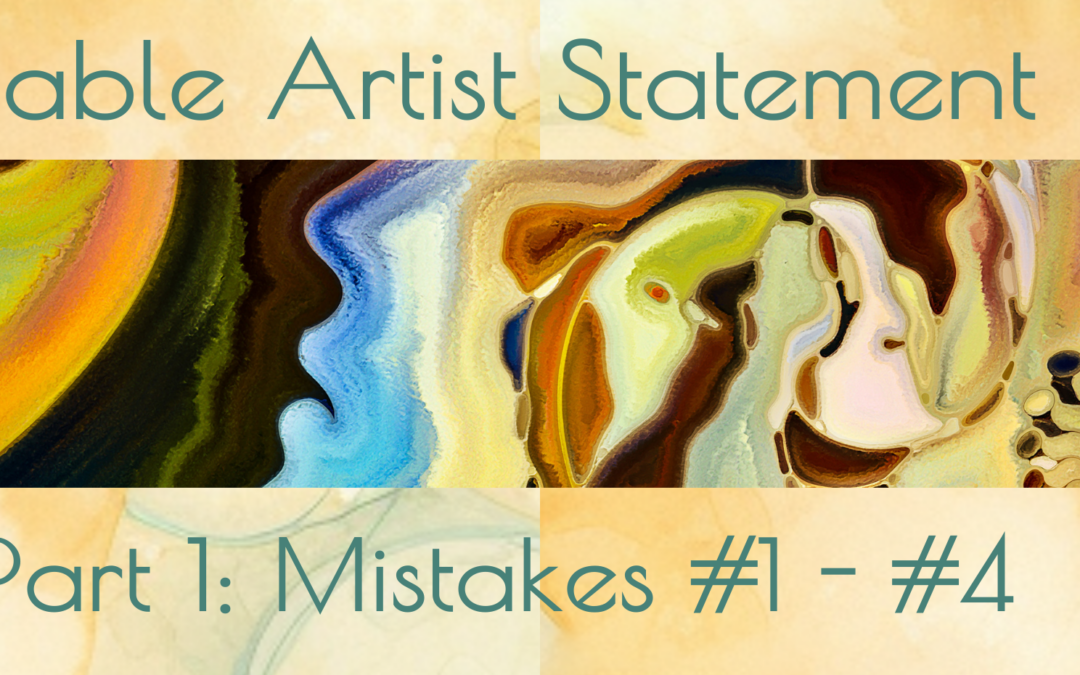
7 Avoidable Artist Statement Mistakes Part 1: Mistakes #1 – #4

Artist Statement Mistake No. 1
Giving Up The Words Around Your Art
It’s always dismayed me that artists who have resistance to the idea of an artist statement give up one of their most vital sources of power: the unique perspective only an artist can have about their work.
Given that so many other people take liberties with words about an artist’s work – the critics, the writers, the viewers – one would think that artists would snap at the chance to stake their claim.
Not so. For many artists, written language is fraught with land mines, and they simply prefer to hang out in the country of the Strictly Visual, or Strictly Musical, or Strictly Performing.
When you do this, you are forgetting one of the most essential facts of the artist/buyer relationship: that for most people who buy art, the artist comes from a creative, mythical realm that feels infinitely mysterious and unattainable by ordinary mortals.
People often buy art so they can feel closer to a creative aura that intrigues or mystifies them. They want to be touched, if just for a moment, by rare powers that only art seems to bestow.
When you have captured the imagination of a viewer with the power of your artwork, why not use that moment to own the relationship you’ve started?
When you also give this viewer a few potent, salient words connected to both the artwork they are looking at, and to you, the creative icon of that moment, you create a sticky factor in the very neurological framework of their brain, i.e., you make it impossible to forget you.
And besides, why should any artist give up this rare and precious chance to use their unique language to open the door to their world even wider for their viewer?

Artist Statement Mistake #2:
Thinking You Have To Explain Your Art
This mistake arises from a basic misunderstand about what the artist statement is supposed to accomplish: creating a deeper bond between the art, the artist, and the viewer.
Besides, a lot of artists are confounded by the very idea of how to “explain” their art, which is often a deeply intuitive process that, by the nature of its visual form feels unexplainable.
Also, explaining often includes telling the viewer what they are supposed to be seeing. And this produces the exact opposite effect of what you want an artist statement to do: pull the viewer closer, not push them away.
People instinctively resist being “told” what they are supposed to be seeing. It feels emotionally invasive, as if our private experience isn’t right or good enough.
And this is pretty silly. When we have experiences, these are closer to a fingerprint than to a choice of this or that. You cannot explain away an experience any more than you can explain away a person’s shoe size.
The emotional essence of an artist statement is to give your viewer a tiny peek behind the canvas.
What is it like for you, the artist, to be doing the work you do. In particular, what was it like to do this piece right here, in front of this viewer?

Artist Statement Mistake #3
Using The Third Person
This mistake immediately labels the artist an amateur.
It also, ironically, shows the viewer the very thing the artist is resisting: showing the depth of self-confidence they lack.
Why is that?
Because, the third person form is an attempt to make your artist statement sounds as if someone important is writing about you.
In this case, the third person implies dishonesty and a lack of courage. It feels as if the artist is unwilling to be vulnerable enough to make I statements, so s/he/they hide behind the screen of maybe someone else wrote this besides me.
Behind this urge to write in the third person are three off-base assumptions:
- Worrying that your statement needs evaluative comments (Ripple’s sculpture excels in the lost wax technique…)
- Worrying that your work needs authoritative commentary (Sybil Caplan’s watercolors open up a whole new direction for…)
- Worrying that no one will take you seriously if you write about your own work.
Hiding your authoritative “I” behind s/he/they/name sends the wrong, unconscious message to your prospective buyers: this artist lacks confidence in the authentic power of their personal truth.
Artists, who use third person, unwitting push viewers away instead of drawing them closer. It’s also a failure to understand how much the viewer craves a peek behind your canvass.
First person “I” is the most direct, honest way to write your artist statement because it gives your artist statement the same authenticity and sincerity you give your artwork.
When you write about your process as an artist, and the relationship you have to your work, you not only draw the viewer closer, you trigger an urge for them to take another, closer look at your work.
I know because I’ve seen this happen over and over when artists know how to effectively present their statements at a show. People look at an art piece. Read a statement. Then take another, much longer look at that very same art piece.
Authenticity, or the ability to speak to the true essence of a thing, actually creates a more powerful aura of authority than using the third person. For, after all, who better to speak about an artist’s work than the artist herself?

Artist Statement Mistake #4
Waiting Until The Last Minute
You’ve put off writing an artist statement as long as possible, but now you’re applying for a grant, a show, a residency, position in the arts, and they want one!
What, may I ask, has been so off-putting that you’ve left this vital piece of your portfolio hanging out on the street corner until now?
Maybe it hasn’t occurred to you, yet, that an artist statement is a necessary part of your career. Here are the most common, 19 places that will use your artist statement.
That’s right: nineteen!
- Websites
- Social media posts/reels
- Portfolios
- Brochures
- Galleries
- Catalogs
- Press releases
- Journalists/Writers
- Media articles
- Art festivals
- Craft Shows
- Retail Stores
- Contests
- Exhibition/performance notes
- Applying for grants
- Applying for teaching positions
- Applying for artist-in-residence
- Degree Applications
- Your Local Chamber of Commerce
The sad thing is that, with a deadline looming, there is no way you’re going to come up with an artist statement that is both compelling and effective for your viewers/readers.
The good news is, when you have an evergreen system in place, you can not only write your core artist statement, you’ll have a template for updating it when your art evolves, for standalone pieces, for commissions, or for a series.
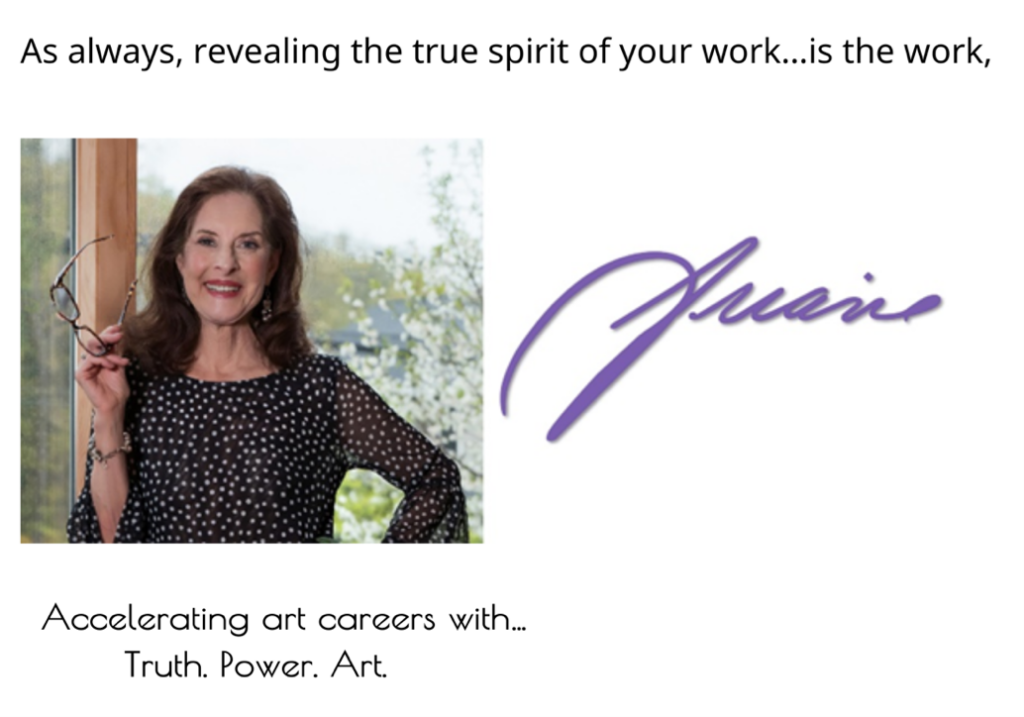
P.S. If you want the best crash course in writing (or updating!) your artist statement, I wrote Writing the Artist Statement: Revealing the True Spirit of Your Work to give everyone, who finds writing about themselves a chore, a simple system.
I guide you through my writing process, one easy chapter at a time.
Write your statement once, and you’ll have a system in place forever.
